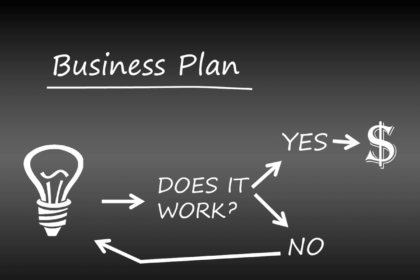Startups are a gamble. You never really know whether your idea will take off or tank. But there are specific reasons why startups fail, and it’s essential to be aware of these before you launch your own business. So if you’re thinking about starting a startup, read on to learn about the most common reasons for failure.
Many startups fail around 4 to 5 years (or less) after they were founded. Some startups fail much sooner than that, while others can last at least 10 or 15 years before their eventual shutdown.
Many factors have contributed to the failure of some tech startups, ranging from poorly designed products, lack of funds, and market conditions, among others. CB Insights initially published the main reasons though I have added my explanations to each point.
Top 20 Reasons why Startups Fail
Here are the top 20 reasons startups fail:
1. No market need
The first reason startups fail is that they may have identified a target market, but there is no need for the product.
I know that sounds like an apparent reason, and I learned about this during my days at college when we were assigned to pitch business ideas.
One of my classmates pitched an idea for a fruit picker (a device used by laborers to pick fruits). He targeted farms in the UK and even got the labor department behind him. The problem was that mechanical devices were already available for picking fruits, so people did not need his machine, and it failed.
2. Ran out of cash
Many startups fail because they run out of cash. Cash is a startup’s lifeblood, which must be continually injected into the business.
Founders should have a well-thought plan for bringing in additional capital as running out of cash will eventually lead to bankruptcy or, worse, being sold at a relatively low price to stay afloat.
3. Not the right team
Another reason startups fail is that they lack the right team to lead or manage the business. This may be because of slow-moving founders, faulty strategies, poor decision-making, etc.
4. Get out Outocompeted
A new startup must have some competitive edge when it enters the market. If not, then be prepared to get outcompeted by more established players already in the market.
5. Pricing/ Cost Issues
Another common reason startups fail is that they lack the skills or expertise to determine the right price for their products.
The cost must be sustainable and within a specific range, but this can only be established after looking at the market and finding out what others are charging for similar products.
See Keys to Business Success
6. Poor Product
When a startup is first coming up with an idea, the product itself should be carefully scrutinized repeatedly.
The founders should constantly search for mistakes or errors in their product development process that could potentially harm the business.
7. Lack of a Business Model
While this is not the same as having a poor product, sometimes startups fail because they do not have a sustainable business model.
The founders may seek to achieve profits from day one, but what happens when their cash runs out if they cannot produce a sustainable revenue stream?
8. Poor Marketing
Failure to market a product can spell disaster for a startup. Marketing is essential because it brings awareness of the product and what it does.
This can be done via traditional means or social media, but if a founder fails to build a rapport with potential customers, they will not know about the existence of their products.
9. Ignoring Customers
Some startups may become so absorbed in their mission to build a successful company that they ignore the wants and needs of prospective customers.
Founders should constantly engage with potential buyers to understand what they want, how much it should cost, and other concerns.
Failure to do this will result in the startup delivering products nobody wants or cares about.
10. Product Mis-Timed
A startup can run into this problem when they are ahead of its time. They created a unique and valuable product, but the market conditions were not right then. This means there may be no demand for the product, which could spell disaster for the business.
11. Lose Focus
When a founder begins to feel like they do not know what direction the business is going in, they should immediately speak to their employees and other stakeholders about getting back on track.
If this keeps happening, it could lead to the company losing Focus and drifting away from its original mission and purpose.
12. Disharmony among team/ Investors
A startup cannot succeed without the help of investors, and most times, they are part of the team.
When there is a lack of harmony between these two parties, problems could arise, which may cause the business to fail.
This can be bad for both sides because it will lead to a loss of money or time with nothing worthwhile.
13. Pivot went bad
A pivot is when a startup changes its business model to suit the needs of its customers better.
If founders fail to execute this step correctly, then it could spell disaster for the company because they will lose sight of their core competencies and what got them into business in the first place.
14. Founders lack passion
Running a startup requires lots of hard work, dedication, and passion. If founders are not passionate enough about their business, then there is no way they will want to continue running it because it becomes tiresome. Passion drives people to succeed in life, so if founders lack this, then their businesses will fail.
15. Bad Location
A startup’s business model should consider where they will aim to do their business. If the founders open up shop in an area that does not have a high concentration of potential clients, it could spell disaster for them because nobody would find out about their product offering. Also, if the location is not accessible enough, people will struggle to get to the business and give it a try.
16. No Financing
Most startups require some level of financial backing to get off the ground. If there is insufficient money to support the business, they will struggle to continue running their operations and will likely fail in the coming months.
17. Legal Challenges
Having a startup is a legal matter, and if the founders neglect to get the necessary paperwork in order from the beginning, they could face many challenges down the road.
This means that they may be unable to get funding from venture capitalists or bring new employees on board because of not having proper documentation.
18. Don’t use Network/ advisors
All startups need a sound support system to lean on, and they should be able to recruit advisors and mentors from what is available.
This will save time and effort because the startup can get advice from those who have been in their situation before.
Not using this resource could make the company make common errors that could have been avoided if they had only asked the right people.
19. Burn Out
When founders become burnt out in their roles because of all the stress of running a business, they could fail because it becomes too much for them.
The risk is that they might neglect specific duties or tasks critical to putting food on the table.
This mistake could be fatal, so it should be treated as an emergency if the founders notice that they are becoming burnt out.
20. Failure to Pivot
A pivot is when a startup changes its business model to suit the needs of its customers better.
If founders fail to execute this step correctly, then it could spell disaster for the company because they will lose sight of their core competencies and what got them into business in the first place.
Conclusion
Despite the many reasons startups fail, there are ways to avoid failure. Understanding these common mistakes and avoiding them can put your startup on the path to success.
Have you made any of these mistakes in your own business? What changes have you made to correct them? Let us know in the comments below.













